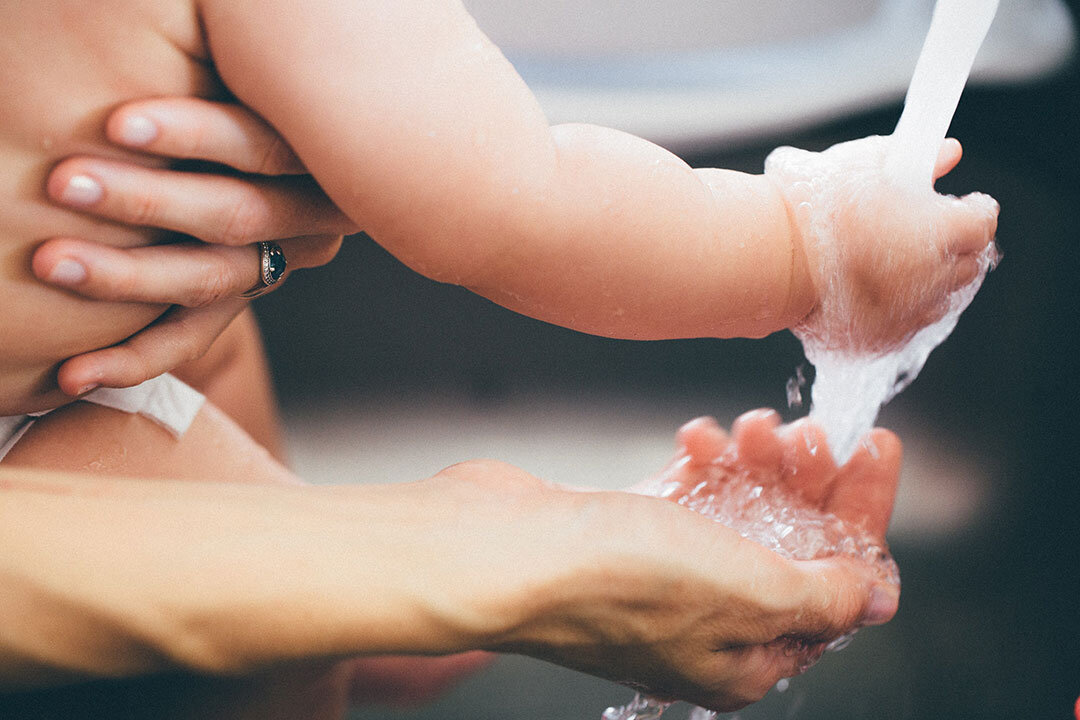It can be awful to watch your child vomit or struggle with diarrhoea, or both! Depending on their age and how long it persists for, you may need to seek medical attention. Here’s a quick guide for surviving tummy troubles.
Potential causes
Diarrhoea and vomiting can be caused by many things including a virus such as the common cold, a stomach bug (bacterial infection), food poisoning or eating something you’re allergic to. Motion sickness can also cause vomiting, and sometimes vomiting signals a more serious illness such as a urinary tract infection, appendicitis, meningitis or a bowel infection.
One or two bouts of vomiting and diarrhoea on their own are not usually a major concern if your child otherwise seems well. But if it persists, it can cause dehydration, so it’s important to keep your child’s fluids up.
Immediate treatment at home
For babies under 6 months of age, they should always be seen by a Dr if you suspect gastro.
For babies over 6 months of age, offer your baby a drink every time they vomit, either by breastfeeding, or by replacing formula with oral rehydration or water for the first 12 hours.
For older children offer small amount of fluid frequently. You can also try icy-poles, diluted fruit juice and flat lemonade.
If your child eats solid food, continue feeding them familiar meals, and be guided by their appetite. Foods high in carbohydrates such as bread, pasta and potatoes are a good option and soup will help replace fluids.
Diarrhoea can cause nappy rash for babies, so make sure you gently clean and dry their bottom during nappy changes, and apply a barrier cream to protect their skin.
When to seek help
Babies under six months old should always see a GP if they are vomiting or have diarrhoea, and Epworth emergency physician Jennifer Mines says all babies should be taken to a hospital emergency department if they appear dehydrated.
“Infants younger than 12 months old do not tolerate dehydration and can become very sick quickly”
Signs of dehydration include:
- Lethargy
- Irritable mood
- Dry mouth and dry eyes
- No interest in drinking
- Fewer wet nappies
- Sunken eyes
- A sunken soft spot (fontanelle) on a baby’s head
- Dark urine
- Few or no tears when they cry
Other signs a child of any age should see a doctor, include:
- Bad stomach pain
- Blood in their poo
- Green vomit
- Diarrhoea that persists for 10 days or more
Caring for a sick child is exhausting, but it’s important to pay special attention to hygiene in case your child is infectious.
Here are some ways to prevent the spread of an infection:
- Regularly wash your hands thoroughly with soap and warm water
- Dry your hands thoroughly and do not share towels
- Regularly clean surfaces such as benches with detergent and water
- Make sure a baby’s bottles are sterilised properly
- Immediately clean soiled bed sheets and clothes
For fast emergency treatment, Epworth Richmond's Children’s Emergency Service is available all day, every day. Epworth also has a dedicated children’s ward.
28 April 2020

